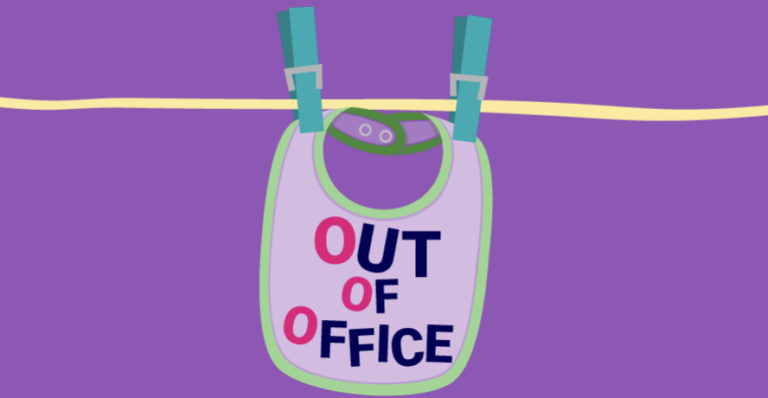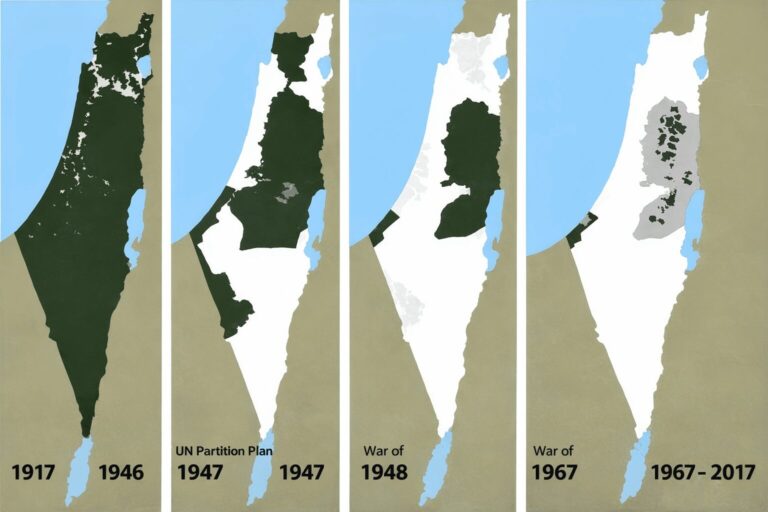MUST READ: Left To Rot
IF YOU WANT TO KNOW why Labour leaves the most disadvantaged New Zealanders to rot in motels – ask the Rogernomes. Ever since Labour abandoned its democratic-socialist beliefs and embraced neoliberalism in 1984, the party has been at pains to keep the disadvantaged politically disorganised and dependent on the good will of the state. They do not do this in expectation of their votes – any votes they get from the welfare underclass are a bonus – they do it because they don’t want them to vote at all.
To fully appreciate the reasoning behind Labour’s demobilisation strategy, it is necessary to go back to the year 1984 and take a look around. New Zealand society was mobilised in a way that “Rogernomic’s Children” – the generations that grew up with no memories of what New Zealand was like before the neoliberal “revolution” – would struggle to accept. Civil society had power in those years. Citizens had power. Even the poor and the unemployed had power.
Right across the country unemployed workers and beneficiaries were being organised. The state bureaucracy still believed that its primary purpose was to help – not hinder – its citizens. Accordingly, the state made funds available to just about any organisation set up to help citizens in need. This included groups set up to assist the unemployed and beneficiaries access the support and services to which they were legally entitled. Centres were established where people on benefits could meet and discuss their problems. By the middle of 1984, more and more beneficiaries were becoming politicised. How politicised? Politicised enough to turn out and vote in record numbers. In 1984, nearly 94 percent of registered voters made it to a polling-booth.
In spite of the fact that these politicised beneficiaries had voted overwhelmingly for David Lange’s Labour Party, the neoliberal cabal of Roger Douglas, David Caygill, Richard Prebble, Michael Bassett and Mike Moore, were acutely aware that politicised workers and beneficiaries were, potentially, their worst enemies. The changes they were about to unleash on New Zealand would swell the numbers of the poor and the marginalised. The last thing the Rogernomes needed was for the victims of their neoliberal policies to find their voice.
The Fourth Labour Government’s solution was as cynical as it was clever.
First, it set up an elaborate employment programme for middle-class people who had lost their jobs called “Access”. Come up with an idea for “helping” the poor and disadvantaged and the government appointed Regional Employment and Access Councils (composed of one third employers, one third unions, and one third representing the rest of society) had money to give you – lots of money.
The key difference between these Access schemes and the Project Employment Programme schemes which had resourced the organisers of the beneficiaries’ movement was that the Access schemes had to be strictly apolitical. The people running them (on excellent salaries!) were to be the poor’s responsible helpers and guides – not their political advocates.
Ostensibly, the people attending these Access schemes were there to be assisted into appropriate paid employment. In reality, they were there to provide a rationale for the generous resourcing of Access managers. Unsurprisingly, very few of these were willing to bite the Labour hands that fed them.
To those unemployed and beneficiaries lacking the entrepreneurial skills to take advantage of the Access schemes, the Fourth Labour Government offered the dole: the whole dole; and nothing but the dole. The bureaucrats in charge of social welfare were not encouraged, as they are now, to micromanage their “clients”. Their “stick” was nowhere near as big and frightening as the one they wield today. The idea was brutally simple: give the poor money, herd them into low-cost housing, and let them rot.
Poverty is only dangerous, politically, when it is widely shared. Confine real poverty to between a quarter and a third of the entire population, rob its victims of the political leadership needed to mobilise them as an electoral force, and the poor become the precise opposite of dangerous – they become harmless.
Once poverty acquires a stigma: once its victims begin to blame themselves for their misfortunes; self-hatred sets in. People begin to withdraw from a society that no longer offers them a place to stand. To alleviate their misery they turn to alcohol, drugs, gambling, sex – anything that serves to dull the pain of unbelonging. In the end they become anomic – beyond caring, beyond acting, beyond help. Or, from the neoliberals’ point-of-view: Safe.
The one weakness in the neoliberal plan for the poor is its cost. If poverty and unemployment grows, then the cost of keeping its victims safe rapidly becomes prohibitive. Ruth Richardson’s “Mother of All Budgets” slashed benefits obscenely. That lessened the state’s burden, but it did not remove it. Welfare roll reduction thus became the new priority: get the poor off the benefit – by any means necessary. It was a song National and Labour sang with equal gusto.
Until Covid.
Turns out that having between a quarter and a third of the population roped-off from the rest of the nation: prey to poverty, plagued by crime, prone to violence, and just not giving a fuck; isn’t all that helpful when it comes to fighting a pandemic. Even less helpful is the inconvenient fact that a disproportionate number of these unreachable ones have brown skins.
The state tried, and the state failed – badly – to reach out to the Māori and Pasifika communities being devastated by Covid-19. To vaccinate as many vulnerable citizens as possible, the hard-and-fast rule, enforced by successive neoliberal governments for thirty-five years, was set aside. Grass-roots advocacy groups were empowered and resourced to get the Covid vaccine out and into the arms of the poor.
The contrast between the “help” provided by the state, and the care provided by their own people, proved to be decisive. Because something else was being injected into them along with the Pfizer vaccine. It was a story in which even they, the poor and the stigmatised, had a place to stand. A story about a country that had once been theirs: about rights and resources guaranteed by a treaty that was not honoured; about a country that could be theirs again – but only if they made a conscious choice to re-create it.
This was a dangerous story for a Labour Government still content, like its predecessors, to push the poor out of the picture. Not into the low-cost housing of the 1980s – that is long gone – but into motels. Out of sight, out of mind. Second-class citizens in third-rate private accommodation. Cramped. Cold. Preyed upon by gangsters in uniform. Desperate. Left to rot.
But not bereft – not this time. Anomie cannot survive the rebirth of hope. Alienation flees before a compelling story. In 1984, it came from a party promising to “lift them up where they belonged”. In 2022, it is coming from a party urging them to lift themselves up.
That party is currently polling 5 percent. After nearly forty years, the poor have recovered their voice.







“You cannot subsidize irresponsibility and expect people to become more responsible.”
– Thomas Sowell
The Labour government didn’t create neoliberalism, they just enacted this policy created by the moneyed class. And this is the key point. Whatever voice – we all – may have should be fighting to get Labour/National/Government to work for the interests of the people, for New Zealanders, for us all – instead of them bending over backwards for the moneyed class. This is the problem of our lifetime – for whom does government primarily serve – the people, or the moneyed class?
1 Million % agree with Chris!!! I’d encourage you to go over to the Democracy project and read Bryce Edwards article on how the Professional Managerial Class have killed the Labour party. 2 sides of the same coin and why I dont think any of us should be voting left (except for Maori voting for the Maori Party who have woken up to Labour’s great Con).
We need a new party people with a leader like Big Norm or Jim Anderton. Somebody who actually gives a damn and will drop all the bullshit and get on with the job.
Fantail. “Somebody who actually gives a damn and will drop all the bullshit and get on with the job “.
Yes indeed. I don’t know where he’ll come from, but for all the knocking that religions get here, and the castration of the unions, the Salvation Army and the St Vincent de Paul organisations are two I know who work for the common good without other agendas. Over the years I flipped a few people the V de P way, and they were pretty good, very pragmatic too. Sallie folk make great colleagues, quite intriguing. I can’t see either group having any appeal to the great unwashed or the pundits so we ‘re back to square one. The Greens have some decent idealistic young people who are so nice they may well be crucified by the IP nutters at the top. And so it goes.
Well said Chris. I remember you as a Meatworkers’ Union rep arguing vigorously against neo-liberalist policies at a Labour Party conference in Temuka. I’m not sure that David Caygill was as hardline as Douglas, Bassett or Moore though.
It surprises me that someone politically astute as Jacinda doesn’t realise that spending on social housing, decent housing that is, is not only acceptable to most voters and citizens, it’s a big vote winner to fix housing. Everyone knows National won’t do it! ACT even less likely.
For whatever the reason was and is, Labour think the pathetic National Party state housing settings she is so proud of are safe and acceptable and that somehow jamming the massive overflow of housing market/economic settings victims into motels (or cars) is also acceptable.
Labour need to wake up from their coma and realise the current situation is, for no lesser reason, sinking them politically! Much less displaying Labours deliberate neglect towards housing victims!
Thank you Chris, for speaking of our society’s scapegoats and the impossible trap very few ever escape.
There is more to say about how scapegoating functions -at every level. But it’s worth briefly mentioning the warning-to-the-others function, especially in undermining unity with natural allies – those who are themselves perilously close to the edge. And this wedge is important too in keeping an army of underpaid workers from protesting their own dead-end misery.
But what I really want to mention is one aspect of covid that seems to always be overlooked. It is that we did have the money and the means if people who actually mattered were threatened. It was never impossible but always a choice.
A terrible, inhumane, and unconscionable choice. Laid bare.
“It was a story in which even they, the poor and the stigmatised, had a place to stand. A story about a country that had once been theirs: about rights and resources guaranteed by a treaty that was not honoured; about a country that could be theirs again – but only if they made a conscious choice to re-create it.”
Nah! It’s not the poor and ignored who are creating co-governance – it’s Nanaia Mahuta, Wiilie Jackson and the affluent iwi authorities.
All I am saying is I love that man.
The real abhorrent crime in my eyes is how the MSM have hushed this all up just for $55 million and a smile.
It surprises me that someone politically astute as Jacinda doesn’t realise that spending on social housing, decent housing that is, is not only acceptable to most voters and citizens, it’s a big vote winner to fix housing. Everyone knows National won’t do it! ACT even less likely.
For whatever the reason was and is, Labour think the pathetic National Party state housing settings she is so proud of are safe and acceptable and that somehow jamming the massive overflow of housing market/economic settings victims into motels (or cars) is also acceptable.
Labour need to wake up from their coma and realise the current situation is, for no lesser reason, sinking them politically! Much less a virtual crime on its victims!
Yes Ada there are people and whanau not just Maori or PI that are a bit unsavory to say the least but when you knock down hundreds of blocks of state housing flats where else can these people go. By knocking down so many and then replacing them with 800k apartment like new builds you then reduce the pool of housing for people most in need. In the past State Housing Corporation (now Kainga Ora) were extremely racist. I know as I lived in one of those blocks and could never get a decent flat or house due to the extent of the discrimination and racism of State housing employees (mostly Pakeha of course). And in those days and I am talking about the early 80s we didn’t get those state jobs. As bad as Labour may seem (to some) they are much better at building State houses. And we know National are better at selling them and pushing more responsibility on community groups so they can wipe their hands and take no responsibility. Deregulation is part of the National parties ethos and we are seeing it in many other western countries like the UK for example.
Don’t forget that with neoliberalism came globalisation which exported the employment opportunities this demographic used to occupy to China and the other emerging mostly Asian countries.
What was offered in return was and still is a resurrection of the treaty , ( which it seems to forgotten now had no place in NZ law from 5 years after it was signed until the creation of the State Owned Enterprises).
This resurrection continues with 3 waters and a proliferation of other sops to our original settler race that seek to appease their effective removal from participation in our modern economy. And hence from society.
The country was better when tey were included in the 20th century world where they were welcome.
D J S
Hopefully if some government department comes along and extingushies your property rights with a payment of 5% of its value you’ll be sweet with that and your racist view of contract law DavidStone.
What a load of kaka David Stone by included in what way given dump state houses in ghetto like areas now with 800k apartments then we had pepper potting housing policy. The trouble with people like you David is you actually believe your own bullshit but haven’t lived it like me.
Great piece. The natzo trolls will totally miss the nuance and history involved.
It is significant to see Te Pāti Māori gaining ground. In Tai Tokerau I personally observed what you write about in action. Tiny settlements were reached with mobile vaccination initiatives and other basic assistance provided at the same time. Some Pākehā got vaccinated by Māori providers like Te Hiku Hauora and got their $50-$200 supermarket vouchers/food & medical supplies just like the Māori folks!
If middle class people were able to enjoy a financially superior second tier COVID benefit so they could avoid the punitive and humiliating WINZ/MSD interaction, then surely the underclass deserved something too.
It will take the new generations to finally overturn Rogernomics imo because the discarded have not managed it yet, and the majority of boomers seemingly have no inclination to do so.
A Labour led Govt. depending for numbers on Green/Māori with some at least class left policies, is the immediate requirement for 2023. For 2026 it should be a full on community organised political campaign of re-nationalisation and retirement of MSD, State Sector Act, Reserve Bank Act and all the rest.
Tiger Moutain. I’m white urban elderly and I never had a word or any contact from my long -standing medical practice about the pandemic. They only text “clients”. I don’t text, so I missed out. Don’t watch television or buy newspapers any more either, and the texting issue is becoming a bit of a problem in other arenas now too.
Yep my Medical practice mainly communicates by text, sometimes a nurse or Doctor will phone back (if you have previously texted them!) so ample chance for a Catch-22 situation to develop.
Just got Gold Card and moved back to Far North, have a Doctor at a PHO in Whangārei two hours drive away–if you can ever get an appointment. Zero chance of getting enrolled in Far North, so people travel or see pop up nurse clinics at local halls.
Tiger Mountain. There’s a pop-up clinic in my local shopping mall. Initially it was bloody depressing not being able to supermarket shop without passing rows of woebegone-looking people lining up either side waiting for covid shotting and seeing the jabbed sitting waiting to get out again, all accompanied by horrible loud music. One of the security guards rifled through the bags of donations dumped outside the Sallies. It’s quieter now, and the music is less jarring as the mall has ghostly empty shops, and normalcy has not returned, and it’s the elderly folk, older than me, who are permanently anxious and possibly disorientated, and that’s sad. Everybody masks up, even the young guys who were defiant and queue jumping the first time around. One quivering old man told me yesterday that he’s feeling his age now and that he will be one hundred on his next birthday. I lied, and told him that he didn’t look a day over 65. Lady told me her lovely old felt hat was bought from Ballantynes pre their tragic fire in 1952 (I think), and she was in the 1945 Christchurch Hospital nursing intake, waiting for the flood of fire victims to arrive, but they didn’t as they mainly perished. Kiddies are having sickies. Kia kaha.
Poor voices? Never forget that that that evil little runt Roger Douglas was a voice from the poor, another boy from a state house who got into power and proceeded to discard the children of the poor and his own origins and a system which benefitted the Douglas family, in favour of the rich and the powerful.
The immigrant Key family did rather well too, going from a state house in Bryndwr to a mansion in Auckland as vulgar and showy as that of any Indian immigrant booze baron. So much for voices of the poor. Nouvea riche Key even had the gall to want to change the flag to suit his pearly king self in a petulant display of self-aggrandisement which would shame any genuine cockney. Rosa Klebb Bennett, the girl from the grocery shop, she got a voice and she used it to pull the ladder up behind her and proactively participate in getting poor people out of their houses and into car boots and onto the streets. Wee Bill English, his boyhood burdened by teenage acne, poor dear, with the benefit of the Catholic school education which fostered the growth of a social conscience, he saw the have-nots as an exercise in manipulation resulting in the deficiencies of Oranga Tamariki so damaging, that the current government is hell bent on silencing the Commissioner for Children and replacing that respected voice with its own public servant flunkies, instead of saying, “Speak and we will listen. “. So much for voices of the poor.
And some of the tribal elites who have done rather nicely in Treaty settlements, have forgotten that in towns throughout New Zealand are folk struggling cold in day to day living and getting nowhere. Let’s not idealise the voices of the poor, they can change like adolescent squeaks.
What’s wrong with success? Seems to me that the politics of envy is strong in this post
I can tell, just by the way you have worded your question that you do not know what success is.
Yeti, there is nothing wrong with honest success – but ‘wealth’ gained from impoverishment of others is not ‘success’, it is immoral and inhumane. We as a society are currently paying the price for this impoverishment of large sections of society. It is sad that so many see ‘success’ as being merely the accumulation of ‘wealth’. Our current financial system disadvantages those contributing in a positive way to society and proactively assists those who see financial gain as the sole reason for business decisions.
100%
Yeti There’s nothing wrong with success in various arenas, and it is often greatly to be admired, but that is not the issue here.
( Tho’ I do envy people who can whip up a sponge cake with one hand while working a vacuum cleaner in the other one, with a gurgling baby perched on a curvaceous hip. Oh yes.)